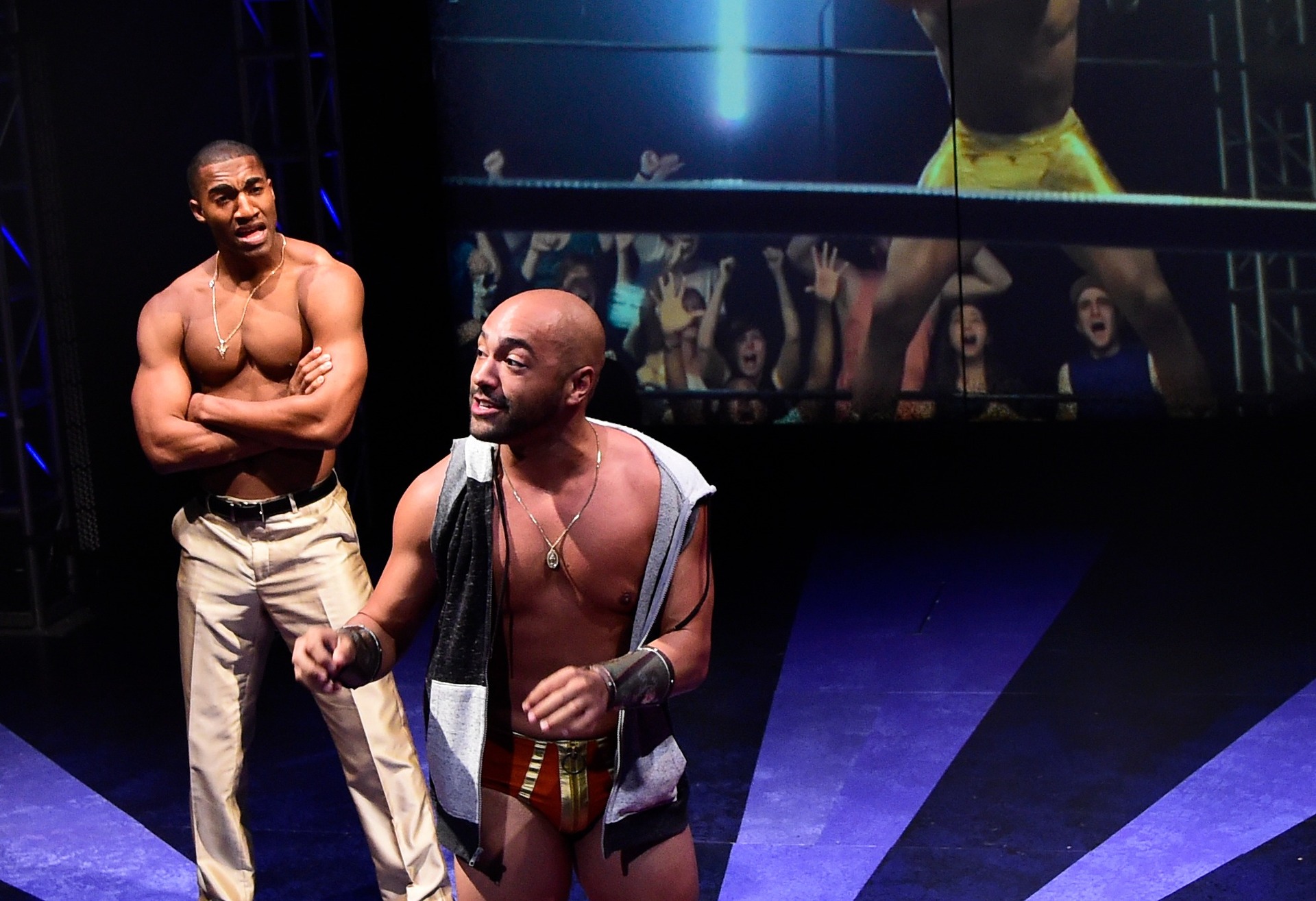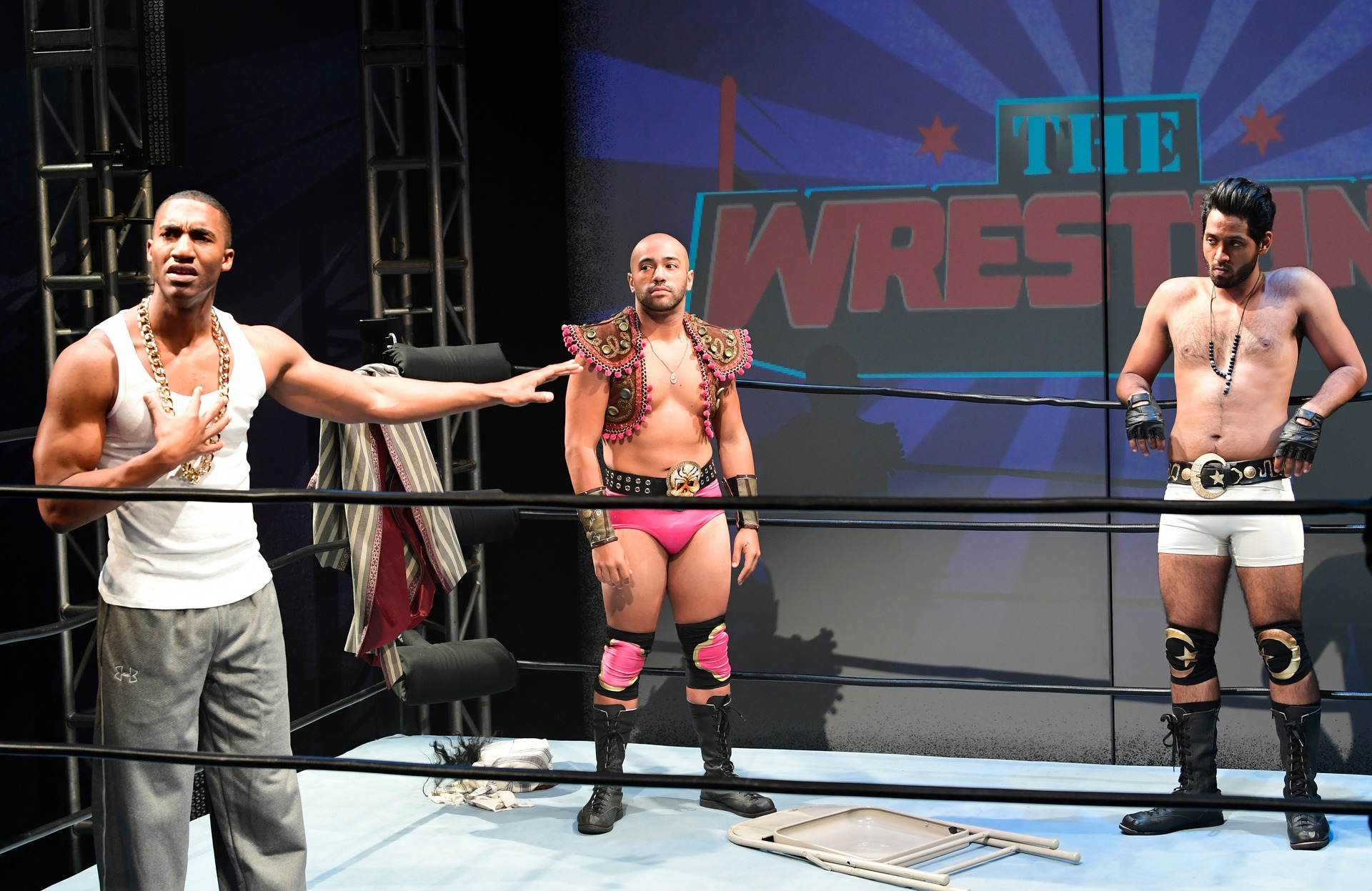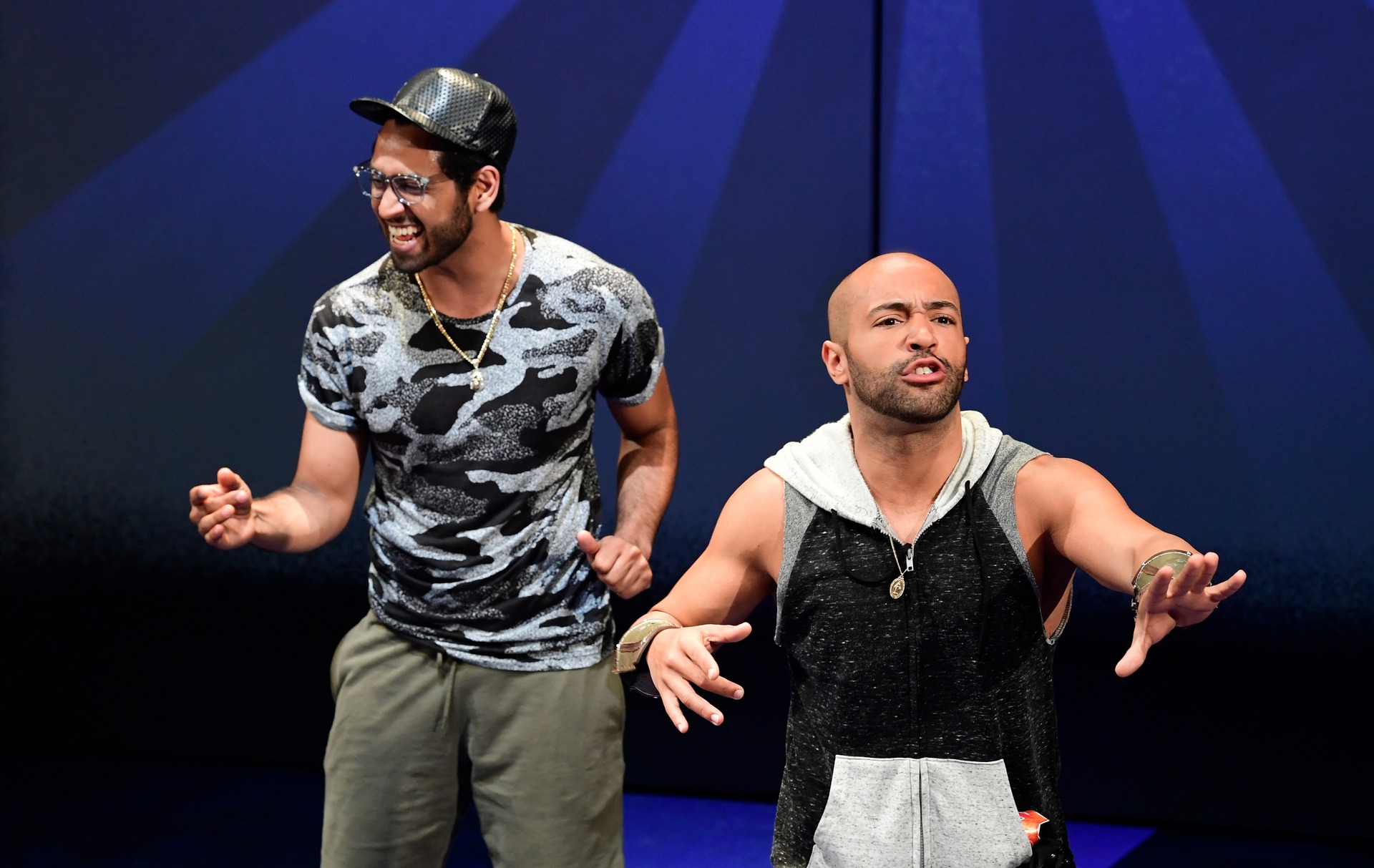
(Garrett Turner (Chad Deity) and Pierre Jean Gonzalez (Mace) in The Elaborate Entrance of Chad Deity. Photo by Cliff Roles.)
Artists don’t just capture the present, sometimes they predict the future.
Kristoffer Diaz’s play The Elaborate Entrance of Chad Deity, a political and cultural satire in pro wrestling spandex, first body slammed the national theatrical scene in 2009. A Pulitzer Prize finalist, Chad Deity earned rave reviews and an Obie Award for Best New American Play during its first round in New York and on major regional stages.
But as Michel Hausmann, artistic director of Miami New Drama, and Michael Edwards, his counterpart at Sarasota’s Asolo Rep, planned their first collaboration, Diaz’s portrayal of racial stereotypes and the blurring boundary between politics and entertainment seemed eerily perfect for the present.
“This play feels much closer to us now than when it was written,” Hausmann says. “Kris saw something in the American character then that was not evident to the mainstream. He was a decade ahead of us.”
Chad Deity centers on New York raised Puerto Rican “Mace” Guerra, a pro wrestler forced to play perpetual loser to the title character, the African-American superstar of a rigged WWE-style franchise. When Mace enlists a cocky Indian-American kid to help him win, the manipulative boss (modeled on real WWE CEO Vince McMahon) makes playing racist caricatures of themselves a condition of staying in the game. Mace becomes a sombrero-wearing, border-busting, freedom-hating communist named Che Chavez Castro, while the newcomer becomes The Fundamentalist, an omm-chanting Middle Eastern terrorist in a turban.

(Garrett Turner (Chad Deity), Pierre Jean Gonzalez (Mace) and Raji Ahsan
( Vigneshwar Paduar ) in The Elaborate Entrance of Chad Deity. Photo by Cliff Roles.)
Today that outline seems like a virtual diagram of the national scene: a CNN-wrestling president who brands Latino immigrants as criminals and Muslim refugees as terrorists; constant cultural battles over racism and stereotyping; political celebrities who traffic in attention-getting, inflammatory images and statements; addictive outrage as entertainment on cable news and late night comedy; and relentless social media combat.
“Obviously anti-immigrant sentiments and the fear of the brown Middle Easterner have been around for a while,” says Jen Wineman, director of Chad Deity for Asolo and Miami New Drama. “But it gives the play another kind of resonance now. It really makes you look at who is exploited for our entertainment…. Who are our good guys? Who are our bad guys?”
Hausmann believes the way we answer those questions is crucial to our future.
“The national discourse has gotten to the point where we are labeling each other in a way that history has shown is very dangerous,” says Hausmann. “That is also the basis of professional wrestling, to go to a gut reaction, not a rational one – to use an emotional label. Call a Mexican a rapist, black people thugs, Muslims terrorists, fake media.”

(Raji Ahsan ( Vigneshwar Paduar ) and Pierre Jean Gonzalez (Mace) in The Elaborate Entrance of Chad Deity. Photo by Cliff Roles.)
A key part of Miami New Drama’s mission is to present plays that amplify issues important to Miami – and the country – such as last fall’s acclaimed, cross-cultural rendition of the American classic Our Town, whose themes of community, family and connection seemed newly resonant at a time when many are withdrawing into isolated camps.
Hausmann believes Chad Deity will also hit home in Miami, a politically, and often culturally, divided city of immigrants in a battleground state – a microcosm for the divisions embroiling our country.
“Whatever we do needs to be in conversation with our community, and needs to be part of the national conversation,” he says. “Miami is at the forefront of the national political battle. This is definitely a play we’re doing to create a gut reaction.”
That visceral response also includes plenty of belly laughs. After all, Chad Deity is a satire, not a political debate. “It’s really funny,” says Wineman. “Right now especially we need to laugh. A lot of people want to crawl under the covers, but you can’t…. We’re having a crisis in our country right now, and this play gives us a way to think about the things we’re all dealing with.”
